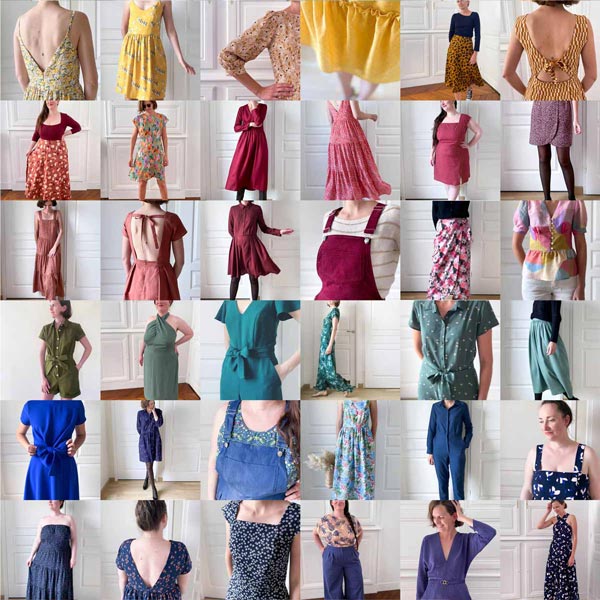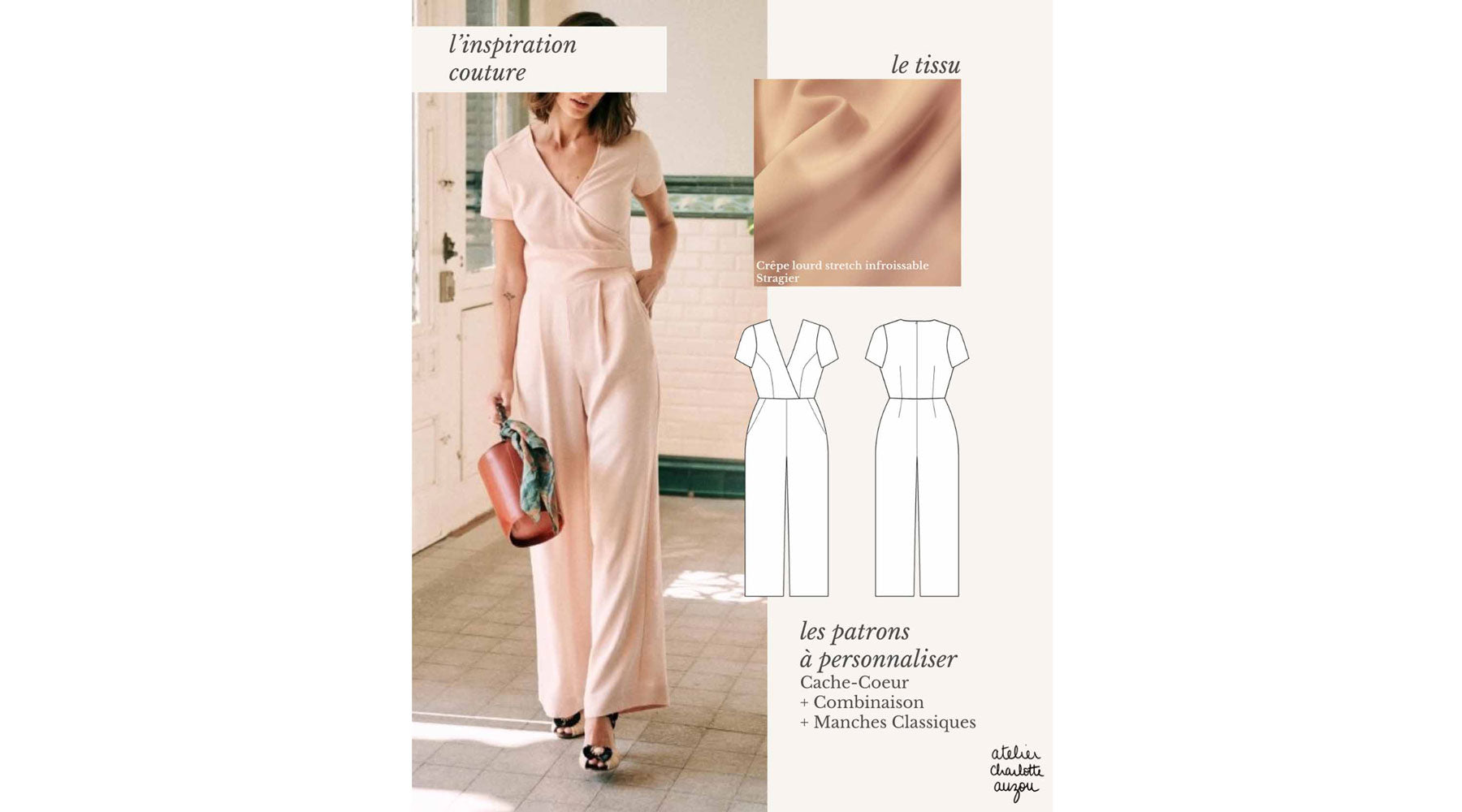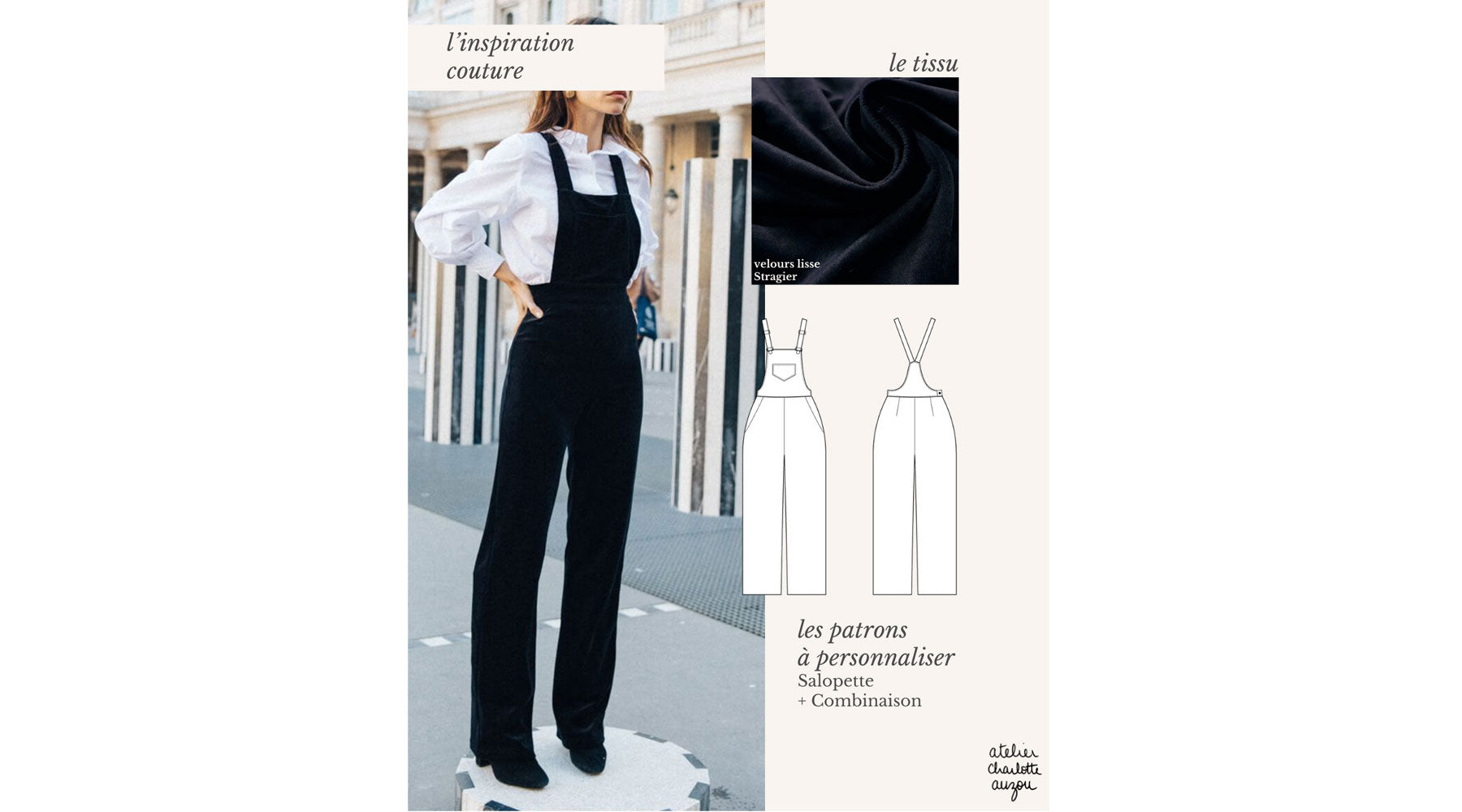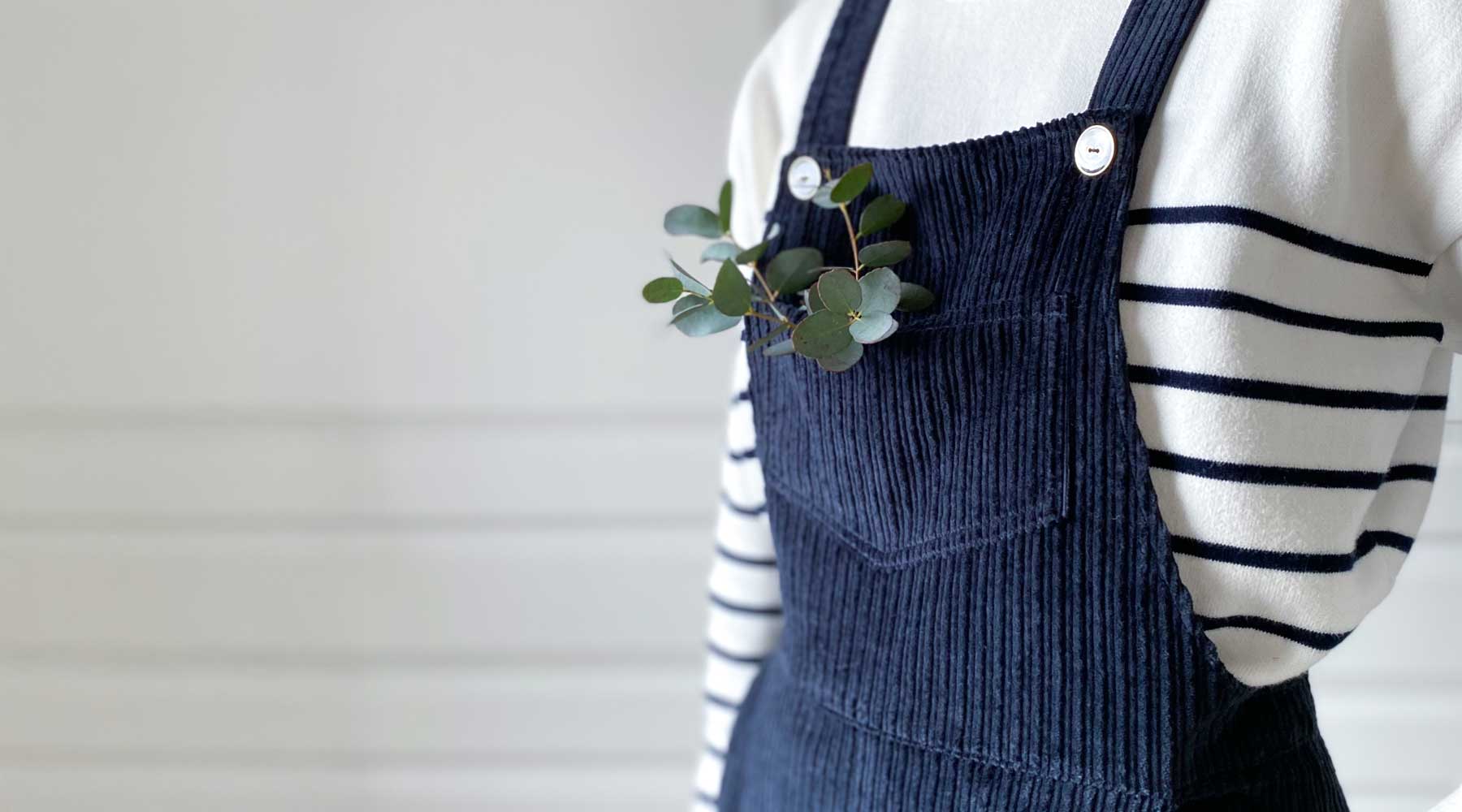12 sewing tips
This summer, I had the pleasure of sharing with you on Instagram my favorite sewing tips. They are not all academic but they work rather well for a perfect rendering of your sewing creations without too much hassle!

"Notch the seam allowances" or "trim the corners"?
When I assemble a facing with a rounded seam at a neckline or armhole, I prefer to trim the seam allowance 2 mm from the seam rather than notching. This gives a nicer seam when ironing on the right side. I also prefer to use my small scissors to avoid accidents 🙈 
Fixing your facings
Facings allow for pretty finishes to necklines and armholes. But to prevent them from coming out when you wear your handmade creation, I advise you to fix them with a few stitches by hand at the shoulder or side seam allowances. 
Do you know about iron-on straight-grain tape?
This is a must-have when sewing flowing materials that tend to stretch on the bias. It is perfect for V-necks, wraps, backless dresses, etc.
Place your fabric piece wrong side out and overlay the corresponding pattern to check that it is not distorted. Position the straight-grain tape in the seam allowance and iron. Your garment will not distort when sewing or wearing. 
The canvas
There are two stages in learning to sew: knowing how to sew and knowing how to make clothes that fit us.
Thanks to a toile, you can make the necessary adjustments to a pattern directly on you so that the standard becomes custom-made.
You can buy special canvas fabric but also use your scraps for a pretty patchwork style canvas ;-) 
Open seams
A great sewing project is ironing. I tend to use open seams for most of my projects and the jeannette is the essential tool, especially for ironing sleeves or pants. 
The invisible zip
This technique may seem scary but it is not that complicated ;-)
I have gotten into the habit of basting my zipper (this is the only time I baste!) to prevent it from moving while sewing. And the special foot on my sewing machine is essential. I also spread the teeth of my zipper apart while sewing to be more precise. 
Passion for festoons 💕
To sew beautiful scallops, you need an easy-to-iron fabric and a suitable interfacing. But I also have this wooden knitting needle, sharp but not too sharp, which I use to form the pleats well when ironing.

Pin
To be able to easily remove your pins as you sew on the machine, place them perpendicular to your seam with the head positioned on the right (or on the left if you are left-handed). 
The assembly marks
To mark the assembly notches or darts, I usually cut the pattern and the fabric with a small pair of scissors. Be careful not to cut too much to stay within the seam allowances ;-) 
The cutting stage ✂️
It's not always the time you prefer. For most of my projects, I've gotten into the habit of using a rotary cutter and a cutting mat. I save a lot of time!
And for flowy fabrics that slide, instead of pinning my pattern to my fabric, I add weights and cut both at the same time. 
Handkerchief hem
Before sewing my handkerchief hem on the machine, I overlock the edge of the fabric. I then have a 5 mm guide which allows me to easily fold my fabric twice and form my hem. 
The table trash can
Even though I have a room dedicated to sewing in my apartment, I have gotten into the habit of having little pots on my work surface to put threads and fabric scraps in. No need to clean up after each sewing session!
And even more useful now that my workshop is shared with my baby's room :)






24 comments
Bonjour,
J’ai appris la couture en autodidacte il y a 40 ans. Maintenant que l’heure de la retraite a sonné, je reprends cette passion oubliée faute de temps. Merci pour tous vos précieux conseils. La vie est un apprentissage permanent et je les notes consciencieusement. Si d’aventure vous avez le temps, un tuto sur:" comment diminuer un vêtement d’une taille ou 2. Je suis très fine et beaucoup de vêtements du commerce me sont trop grands ( je renonce souvent à acheter d’ailleurs). J’ai des pièces que j’aime beaucoup et je souhaieterai les remettre à ma taille. Évidemment les astuces de bases sont nécessaires mais je manque d’information pour la réduction de vêtements
Bien cordialement à vous et un grand merci
Fran Da Silva
Je couds depuis toujours mais en dilettante. le truc “couper le patron et le tissu léger en même temps”, je ne connaissais pas. C’est une super idée qui doit vraiment faciliter la vie. Merci pour cette super astuce!
patricia
Excelentes consejos, algunos ya los utilizaba, ahora adoptaré el resto. Gracias!
Eva
Je viens de prendre connaissance de vos astuces de couturière, et je vous remercie pour ces conseils précieux.
Pellegrini
@ CAMILLE : si votre tissu est très fluide et léger, c’est un plus pour éviter que le décolleté ne se déforme au fil du temps. Bonne couture !
CHARLOTTE
Bonjour,
Si la parmenture est déjà thermocollée, est il nécessaire de mettre du droit fil thermocollant sur le décolleté de la pièce principale ?
Camille
@ODILE : le Stabilmanche est coupé dans le biais, contrairement au droit-fil thermocollant. Il sert à renforcer les zones en arrondi comme les emmanchures ou encolure ronde. Bonne couture !
CHARLOTTE
bonjour,
merci pour toutes ces bonnes techniques, je me lance dans peu de temps sur la combinaison de mariage civil de ma fille et de sa robe de mariée avec vos patrons. j’ai une question cependant: le stabil manche est-il la même chose que le droit-fil thermocollant ?
merci
Odile
Excellente présentation ,facile à comprendre …pour mon bébé il va falloir juste l’éloigner de cette pièce à cause de la poussière des tissus ou de la crais ….Que Dieu vous accorde plus d’espace et encore plus d’inspiration pour nous soutenir …
Merci encore
Couturière depuis 2016
Je vous envois mes félicitations depuis la côte d’ivoire ,en Afrique de l’ouest .🙏😊
Aby
Merci pour les astuces je prends des cours et tous les trucs sont bons pour progresser merci
Jojo
@MONA : je couds avec la Skyline S7 de chez Janome.
CHARLOTTE
Bonjour j’aura Souhaitez savoir quel machine à coudre utiliser vous dans vos créations couture
Mona
Merci de faire partager ces astuces qq unes que j.utilise déjà
Bossard Patricia
Merci vos conseils sont clairs et intéressants j’ai 80 ans et viens de recommencer à coudre et vous me rafraîchissez la mémoire agréablement
Monique
Quel bon goût, quelles belles pages, bref, je découvre TOUT . Merci beaucoup. Il y a trop !
Je découvre aussi, avec soulagement, qu’il y d’autres personnes qui sont passionnées de couture, et qui ont le même problème (?pour moi il est très grand) de la maladie onychophagie…….. Ouf. je ne suis pas seule………
Mirandoline
@FARIDA : merci pour votre message et votre enthousiasme. Bonne couture !
CHARLOTTE
merci pour ce beau travail ! continuez et on apprend de vous
farida
Bonjour,
Merci pour vos astuces coutures ,j’aime regarder vos vidéos et j’ai acheté le livre,Apprendre à coudre sa lingerie qui est génial
Bonne continuation
Camille
Seymour
La couture est aussi ma passion depuis plus de 20 ans, j’approuve absolument et j’utilise les mêmes trucs et astuces que vous. Bien vu de partager
Katel
@LISE : un ourlet mouchoir est un ourlet fin parfaitement adapté pour les tissus légers et les ourlets en arrondi.
CHARLOTTE
je ne connais pas le point ourlet mouchoir, j’aimerais en savoir plus
Lise Gauthier
Merci pour cette mine d’informations.
Simonin
Merci énormément pour ces précieux conseils!!!
manous974
Merci pour les cours
Djinan souma
Leave a comment
This site is protected by hCaptcha and the hCaptcha Privacy Policy and Terms of Service apply.